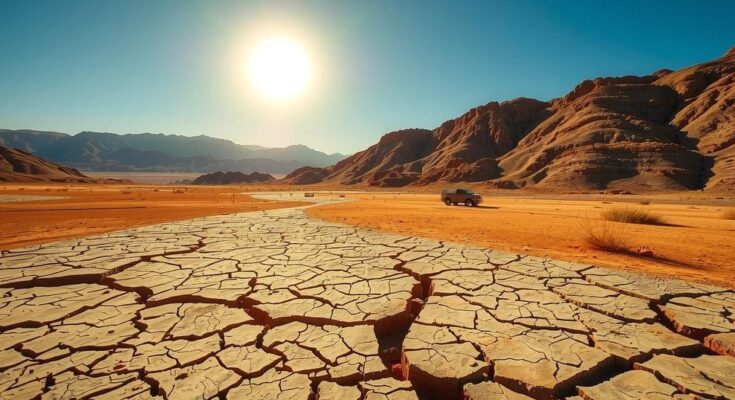As Muslims fast during Ramadan and Christians participate in Lent amidst Tanzania’s heatwave, experts emphasize the importance of gradual hydration, water-rich foods, and managing time in the sun to prevent dehydration and maintain health.
During the holy month of Ramadan and the Lenten season, fasting in Tanzania can be particularly challenging due to the extreme heat. Regions such as Dar es Salaam, Tanga, and Kilimanjaro are experiencing soaring temperatures, which heighten the risk of dehydration for those abstaining from food and water for extended hours.
Experts stress the importance of a structured approach to hydration during non-fasting hours. While it may seem advantageous to consume significant amounts of water at once, research shows that the body absorbs water more effectively when ingested gradually. Dr. Kantamla Mafuru from the Tanzania Meteorological Agency indicates that the ongoing heatwave may lead to discomfort and symptoms akin to illness as the body works to regulate itself through sweating, leading to fluid and salt loss.
To mitigate these symptoms, Dr. Mafuru advises increasing water intake during non-fasting periods and recommends consuming fruits with high water content, such as watermelon. These fruits can help maintain hydration levels effectively. He also suggests minimizing outdoor work during peak heat hours and finding shade whenever possible to protect oneself from heat-related illness.
Furthermore, climate conditions are predicted to improve as the rainy season approaches, with a significant drop in temperatures expected after the second week of March. Health and Nutrition Coordinator Dr. Daudi Gambo emphasizes the importance of avoiding direct sunlight and remaining in well-ventilated spaces.
Dr. Gambo recommends methods to cool the body, such as taking baths or pouring water over oneself, especially in poorly ventilated areas. When breaking the fast at iftar, he advises starting with porridge to stimulate enzyme production and incorporating dates for sweetness.
Fatma Mwasora, a Senior Nutrition Officer, highlights dietary choices essential for hydration. She urges fasting individuals to consume fruits and vegetables while avoiding excessive salt, which can increase thirst. She warns that high salt and spicy foods during iftar elevate the body’s water requirements and can be detrimental to those with heart conditions.
Additionally, Mwasora stresses the need to limit beverages that contain caffeine and nicotine, as these can further exacerbate dehydration. It is advisable to consume caffeinated drinks away from meal times to improve iron mineral absorption. Individuals should also refrain from strenuous physical activity during fasting hours to avoid heat exhaustion.
A meticulous balance of hydration and nutritious dietary choices is crucial for those observing fasting to maintain good health and uphold their spiritual commitments while managing the challenges posed by Tanzania’s heatwave.
In summary, navigating fasting during Tanzania’s extreme heat requires careful hydration strategies and dietary considerations. Recommended practices include gradual water intake, consuming water-rich fruits, seeking shade, and avoiding excessive salt and caffeine. By following these guidelines, individuals can maintain their health and well-being while fulfilling their spiritual obligations amid the challenging climate conditions.
Original Source: www.thecitizen.co.tz




